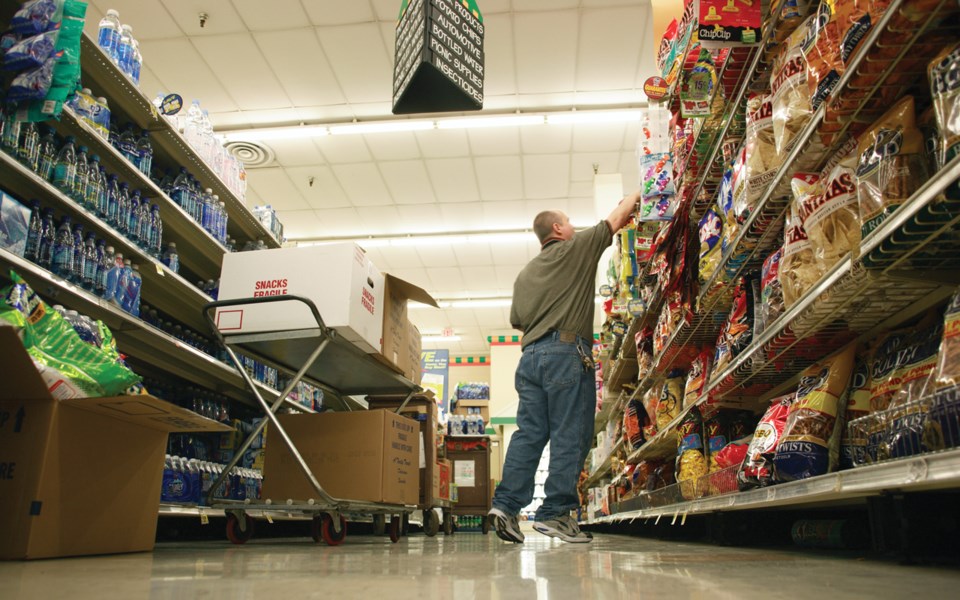Over the past few weeks, a fight has quietly waged on between a Canadian retail giant and one of the world’s largest food manufacturers. And while it hasn’t managed to capture the attention of most Canadians, as news of trucker convoys and war in Ukraine have dominated the headlines, you can be sure very few Canadians won’t feel its consequences in their pocketbook.
Reporters have recently learned that Frito-Lay, a brand owned by PepsiCo Canada, made the unlikely decision to stop selling to Loblaws after the retailer shot down requests from Frito-Lay to increase their prices. That sounds like good news for the average Canadian who has already seen their food costs skyrocket in the pandemic, right? So what’s the problem? Well, it’s not quite that simple.
Unlike most other industries, food sector suppliers pay their clients to do business. Manufacturers will pay listing fees for the privilege of getting their products onto a grocer’s shelves, a long-accepted cost of doing business. But with shrinking profit margins, labour shortages, issues with packaging, unprecedented supply-chain disruptions and historic inflation rates, it’s clear that at least some manufacturers are tired of playing ball with Canadian grocers that are increasingly jacking up their fees and, in some cases, have even reduced suggested retail prices without manufacturers’ consent.
For a brand like Frito-Lay, which uses Canadian potatoes grown by Canadian farmers, the volatility was too much to bear. But why blame Loblaws for keeping retail prices low? Well, the reality is, the Canadian consumer doesn’t always benefit from this kind of tactic. Dr. Sylvain Charlebois, senior director of Dalhousie University’s agri-food analytics lab, has called Canada’s retail grocery sector an “oligopoly,” with almost 90 per cent of all the food Canadians buy sold by just five retailers.
“Grocers want to remain competitive and will defend margins the best they can against market rivals,” Charlebois wrote in a recent release. “If Loblaws get a lower price, it doesn’t mean Canadians benefit all the time. They may sometimes, but shareholders are often the big winners.”
In years past, when there were supply-chain issues ongoing, food manufacturers “always had to blink first,” Charlebois went on. “PepsiCo’s move signals that the sector is tired of and desperate to stop ‘supply chain bullying.’”
In the professor’s mind, the situation speaks to a growing need for an industry-wide code of practice that would allow companies to go to an arbitrator to settle these kinds of disputes and avoid further disruptions to the market. “This situation affecting the chips section of the grocery store is concrete evidence of how supply chain wars can impact consumers directly,” he said. “We need supply chain peace; we need an authoritative code.”
Loblaws doesn’t exactly have the most glittering track record either. In 2017, Canada’s competition bureau began investigating a bread price-fixing scandal among the country’s biggest grocers, which had artificially hiked the shelf price of commercial bread products over a span of 14 years. Loblaws handed out $25 gift cards for its role in the ordeal, leading many to believe the saga was over—but the investigation remains ongoing and charges could still be forthcoming.
Mindful of the economic toll of the pandemic, grocers are increasingly looking to other brands—including their own in-house brands—to fill any gaps on their shelves potentially left by major suppliers like Pepsi. “With current market conditions and the fact that the food inflation rate is north of [six per cent] now, consumers will be trading down and seeking more house brands,” Charlebois wrote.
“Grocers know it, so the time may be right for them. Remember, they have the power and many weapons at their disposal.”
Food manufacturers aren’t likely to take such market manoeuvring laying down, however. Since the pandemic started nearly two years ago, many food manufacturers, including Pepsi, have explored the possibility of cutting out the middle man and selling food directly to consumers, giving them more control over market conditions. Given the size and reach of a brand like Pepsi, it’s not unrealistic to think it could extend its fleet of trucks to connect its plants directly to shoppers—although, as Charlebois warned, many companies have tried to transition to a business-to-consumer model in the pandemic and “failed miserably.”
Given the extent of the upheaval the pandemic has caused on Canada’s food supply, it’s worth noting we only know about this latest dispute between retail giants likely because someone wanted the information in the public sphere. But make no mistake: Canada’s so-called “Chip War” is probably only the tip of the iceberg.
“[M]any other manufacturers and other grocers are involved in a similar tug-of-war match,” said Charlebois. “It’s happening in dairy, bakery … many food categories are impacted by this.”




